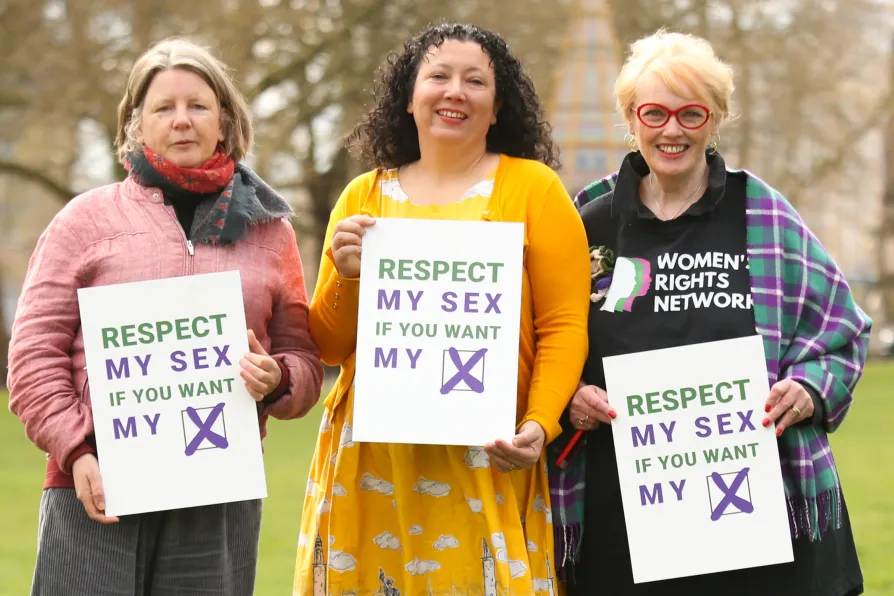The US-Israeli strikes against Iran are part of a decades-long war against the Islamic Republic which has refused to bow to US demands that it surrender its sovereignty, argues VIJAY PRASHAD
Outspoken Women: how campaigners for sex-based rights see their priorities under a new government
LYNNE WALSH reports on discussions among feminist campaigners and a recent Swansea University event

 Caroline Ffiske of Women Uniting, Heather Binning from the Women's Rights Network and Maya Forstater of Sex Matters in Victoria Tower Gardens, Westminster
Caroline Ffiske of Women Uniting, Heather Binning from the Women's Rights Network and Maya Forstater of Sex Matters in Victoria Tower Gardens, Westminster
RECENT events have left women who fight for their sex-based rights in trepidation as to what will happen next.
Helen Joyce, director of advocacy at human rights charity Sex Matters, said after the election result: “We look forward to working to help Keir Starmer’s government strengthen sex-based rights in order to protect women and children.
“Labour has pledged to support a broad range of rights for women, but it will only be able to deliver if it has the courage to be clear that sex is real and that it matters.
Similar stories

Supreme Court ruling prompts sporting bodies to redefine eligibility by biological sex

The Sandie Peggie v NHS Fife tribunal shows unions need to get up to speed with where the law stands on the requirement for workplaces to provide single-sex spaces, writes JANE McLENACHAN












